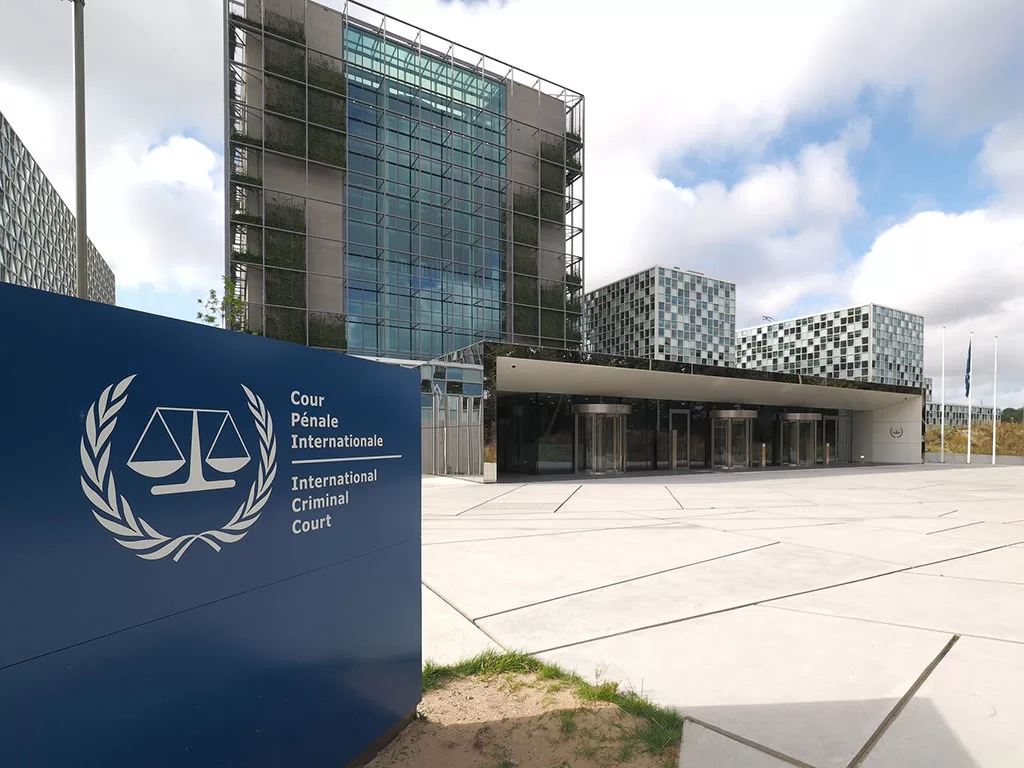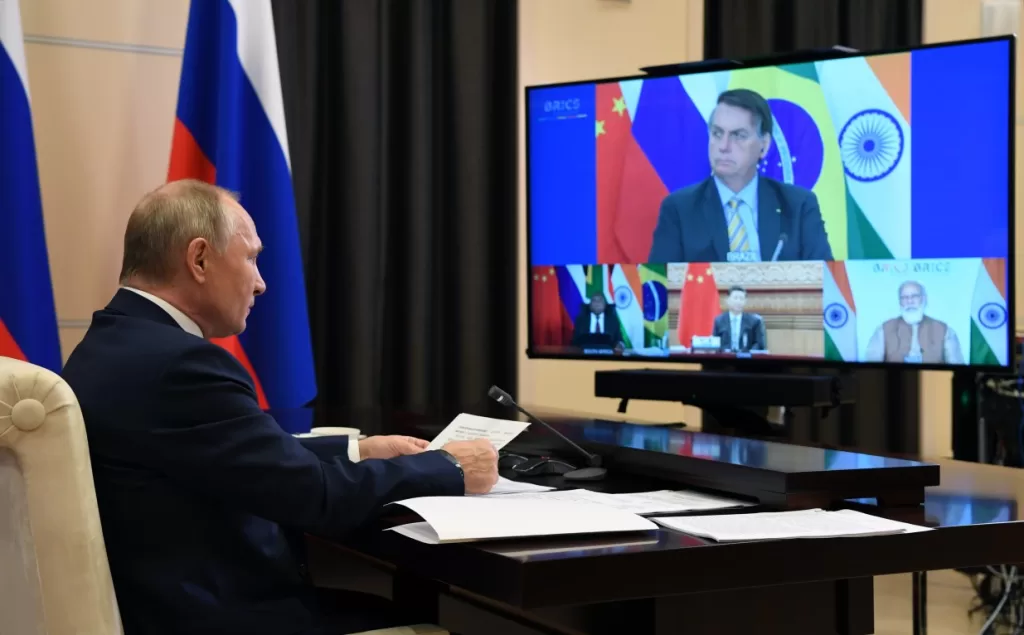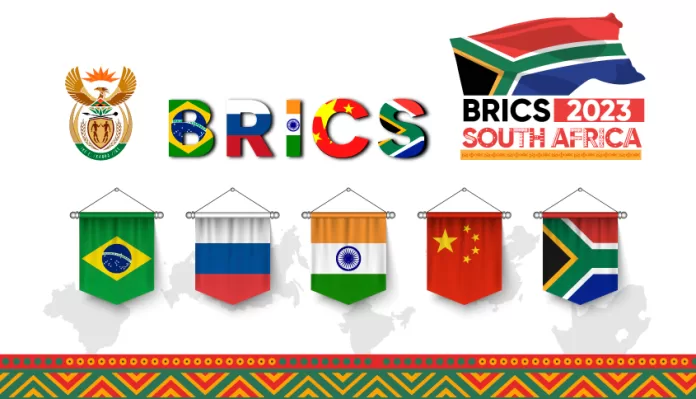The forthcoming BRICS Summit set to take place between August 22nd and 24th in Johannesburg, South Africa, has plunged into a whirlpool of international scrutiny due to an unforeseen twist. The president of Russia, Vladimir Putin, a pivotal actor within this coalition of Brazil, Russia, India, China, and South Africa (BRICS) has chosen to abstain from in-person attendance.
The BRICS alliance, a crucial linchpin in the global economic and political machinery, commands a profound influence on the creation of worldwide economic policy and bolsters financial equilibrium. Its member nation’s together account for a noteworthy 17% of international trade and an impressive third of global GDP. Known for their collaborative endeavor towards global poverty alleviation, the participation of each nation in this alliance is of utmost consequence.
Nevertheless, the intrigue surrounding the summit has amplified with Putin’s recent decision to forego physical presence. This move can be viewed under the specter of an arrest warrant against President Putin issued by the International Criminal Court (ICC) in The Hague. The Kremlin leader stands accused of severe war crimes in Ukraine, encompassing charges such as the illegal deportation of children. The gravity of these developments is emphasized by the fact that this marks the first arrest warrant against a leader of a country that holds a permanent seat on the United Nations Security Council.
Amidst the gravity of these charges, conjectures abound regarding the potential implications of Putin’s absence on the conduct of the BRICS Summit. While opinions are divided, a significant segment believes that Russia’s standing within the BRICS alliance will remain undeterred. The emerging consensus leans towards a lack of substantial political fallout for Russia, either on domestic soil or the international stage. Interestingly, Putin’s choice to abstain may inadvertently position South Africa, this year’s host nation, on firmer ground.
With Putin’s absence, South Africa may find itself distanced from international pressure to act upon the ICC’s arrest warrant, thereby circumventing potential diplomatic predicaments. Although conjectures regarding the political implications of Putin’s absence continue to circulate, a broad consensus maintains that the agendas and discussions at the BRICS Summit will stay largely unaffected.
Putin’s choice to harness the power of modern technology to attend the Summit virtually not only ensures a continuity of dialogue but also highlights the transformative potential of digital platforms in shaping 21st-century international relations.

This situation serves as a salient reminder of the intricate dance between international politics and law. The arrest warrant issued by the ICC against Putin has reignited debates about the efficacy, role, and enforceability of international institutions. Despite being signatories to the ICC Statute, neither Russia nor Ukraine have ratified it. The complexity of the situation was further escalated when Russia retracted its signature in 2016 following the controversy over its annexation of Crimea. Despite these complexities, Ukraine demonstrated its full cooperation with the court, underscoring the urgent necessity for an unwavering commitment to international law.
The geopolitical panorama that unfurls in the wake of the International Criminal Court’s (ICC) issuance of an arrest warrant against President Vladimir Putin is nothing short of complex. This occurrence illustrates the multifaceted challenges intrinsic to the execution and enforcement of international law, emphasizing the urgent necessity for robust mechanisms that hold nations and individuals accountable for their actions on the global stage. As the warrant against Putin stands as a formidable precedent, it not only underscores the concept of accountability among global leaders but also forecasts the potential ramifications of their actions. The reverberations of this development extend well beyond the confines of the BRICS Summit and have profound implications for the construct of global governance.
In this context, President Putin’s resolution to attend the forthcoming BRICS summit virtually, due to the aforementioned arrest warrant, has the potential to significantly reshape perceptions of international law, domestic politics, and global diplomatic relations. This decision serves as a crucible for the effectiveness of international legal entities and has the potential to inspire other leaders facing similar circumstances to adopt analogous strategies, thereby potentially undermining the legitimacy of these global institutions. On the domestic front, the public response is anticipated to be bifurcated; some factions may interpret this move as a display of Putin’s steadfastness in the face of international pressure, while others may perceive it as a detriment to Russia’s international standing.

Diplomatically, Putin’s decision has the potential to engender strained relations with Western countries that are supportive of the ICC’s decision, while simultaneously fostering stronger ties with nations that oppose the warrant.
Within the BRICS alliance, Putin’s physical absence from the summit could subtly recalibrate power dynamics, though it is unlikely to significantly alter the longstanding relationships between these nations. South Africa, the host nation, may discover a diplomatic boon in Putin’s absence, circumventing potential international pressure to confront the ICC’s warrant head-on.
Although the BRICS nations might encounter criticism for their perceived leniency regarding Putin’s decision, they could counter this by reiterating their commitment to principles of respect for national sovereignty and non-interference.
Lastly, this incident stands to set a new precedent in the realm of digital diplomacy. If successful, Putin’s remote participation could encourage a broader acceptance of virtual attendance in international diplomacy, particularly in situations where physical presence is contentious or problematic.
In conclusion, the forthcoming BRICS Summit, set against the backdrop of intense global scrutiny, offers an intriguing insight into the complexities of international politics, the power and limitations of international law, and the increasing role of technology in diplomacy. The evolving situation underscores the reality that in our globalized world, the actions of a single leader can reverberate across national boundaries, shaping and influencing international relations and policies.
As the world watches with bated breath, the unfolding events promise to contribute a fascinating chapter to the annals of international politics.




